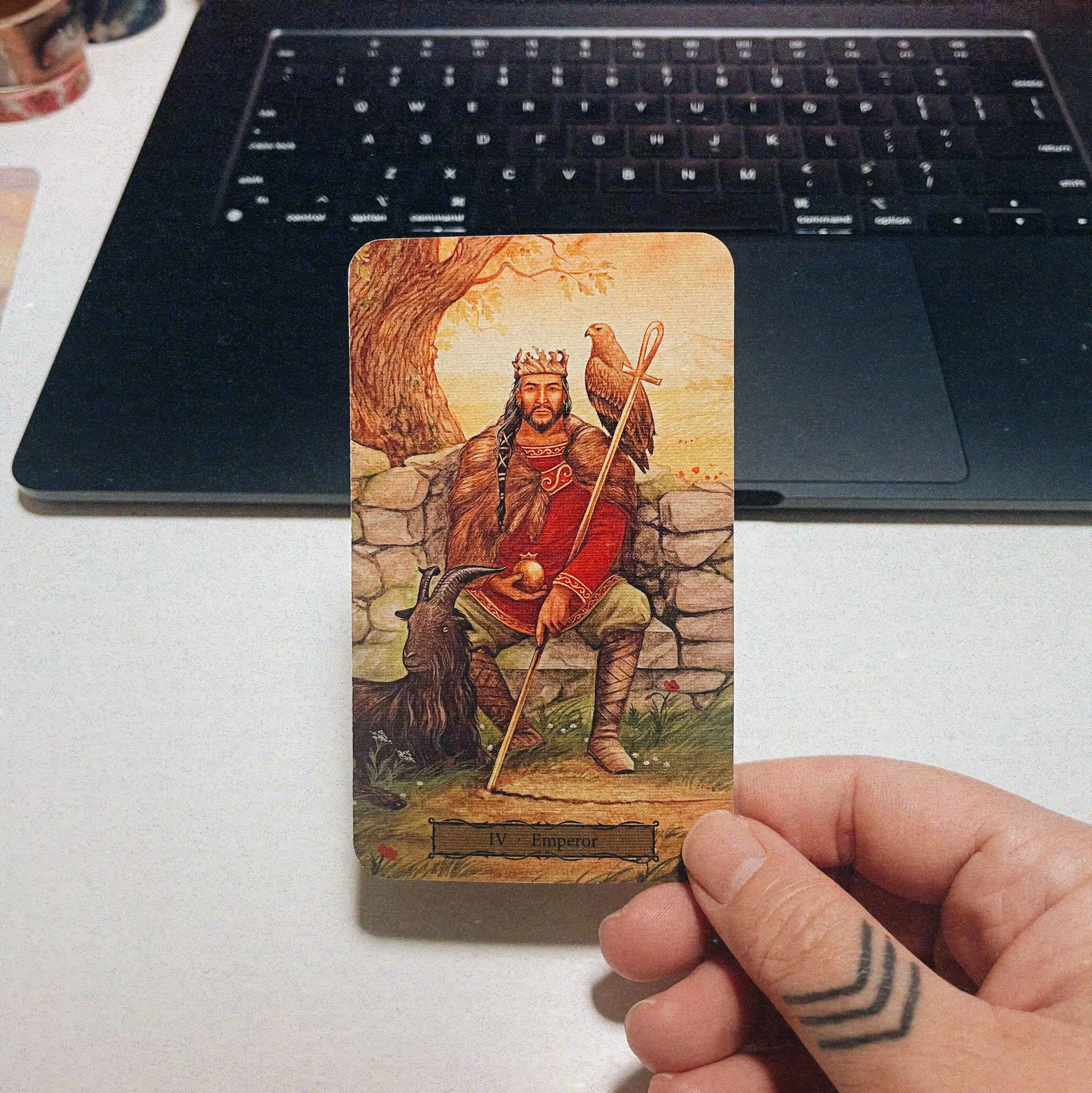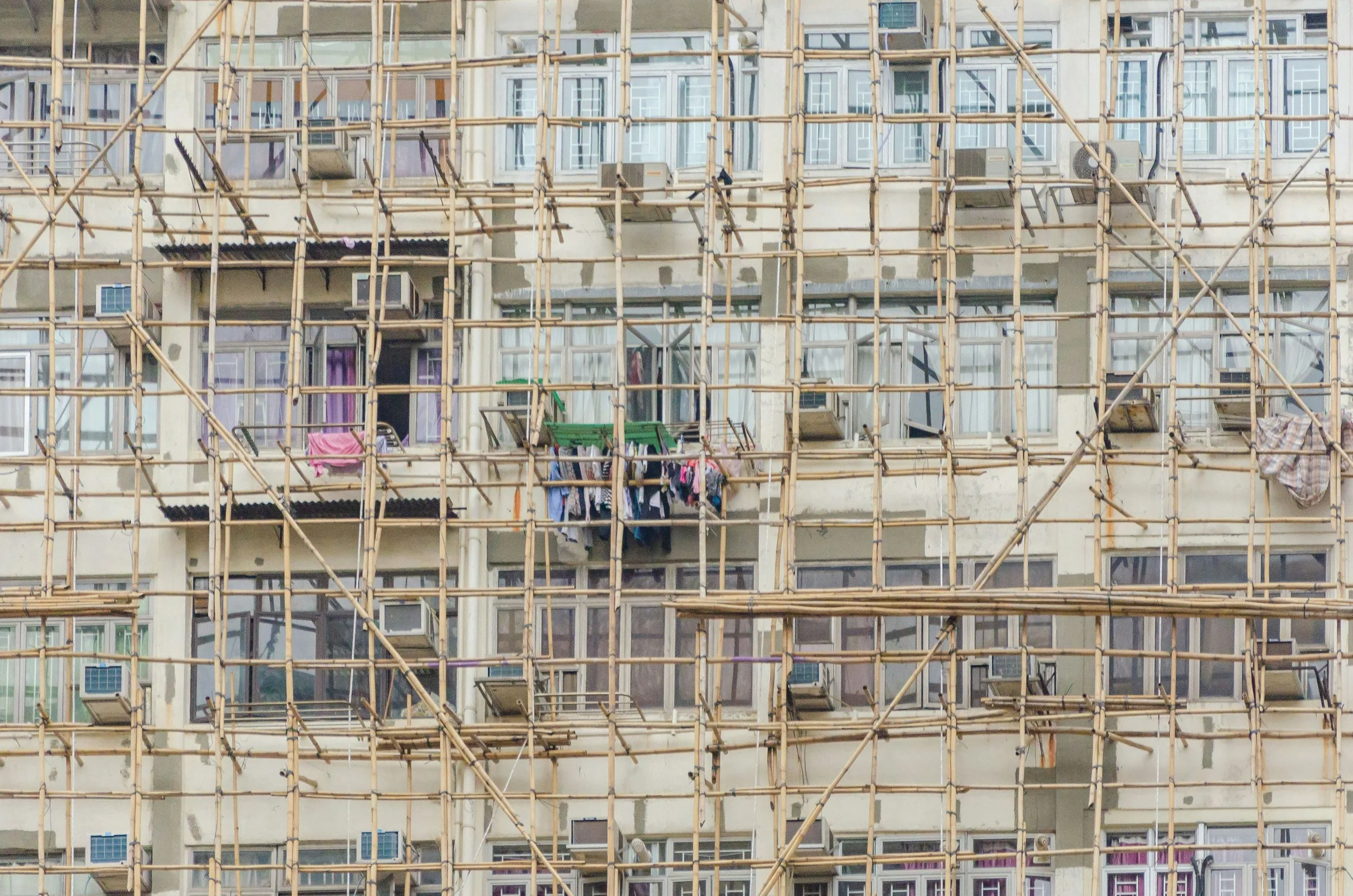The Emperor, Resilience, and 5 Element Tarot
Recently, a client drew the Emperor card during a session. She’s navigating a challenging phase where her carefully planned life has been thrown off course, and the future feels uncertain. Her fear and anxiety are exacerbated by the lingering shadows of a complex and abusive relationship with her father. Even as a woman in her 50s, the trauma from childhood reverberates through her current struggles.
In 5 Element Tarot, all Major Arcana cards resonate with the energy of the Wood Element. This Element, embodying growth, adaptability, and resilience, aligns perfectly with the essence of The Emperor. Traditionally, The Emperor is seen as an archetype of control and rigidity—symbolising structure, authority, and power. Yet, within the framework of Chinese medicine, Wood offers a more nuanced understanding of strength. It teaches us that true strength lies in our ability to stay grounded while swaying with life’s unpredictable winds.
This makes me think of the bamboo scaffolding that was everywhere during my childhood in Hong Kong. Bamboo is incredibly strong and flexible, making it ideal for Hong Kong’s typhoon-prone climate. Bamboo bends with the wind, sways with the weather, yet it never breaks. This is the kind of strength The Emperor embodies when seen through the lens of Wood Element energy.
Strength doesn’t mean rigidity, instead it’s having the flexibility to adapt, change plans, and pivot when necessary—that is what it means to embody real authority and sovereignty.
Power is being present to our experience and, in doing so, understanding what we can and cannot control. So many of us expend precious energy worrying about or trying to change things that are beyond our control, leaving us drained and unable to focus on the things we can influence. The Emperor teaches us to recognise our sphere of control and to channel our energy effectively. This lesson is particularly relevant in a society that often equates strength with being unyielding or dominating.
This can be seen in our current political climate, where the authoritarian archetype of the father, symbolised by The Emperor, can be superimposed onto our current political class. We are witnessing the devastating consequences of rigid control and dominance, particularly in the context of the genocide in Gaza. Prioritising power over compassion, and dominance over dialogue, there is no space for anything new to evolve.
These rigid, authoritarian models of power and control often found in societal systems are also replicated within family dynamics, contributing to the personal and collective traumas we struggle with throughout our lives. The Emperor governs the macrocosm and the microcosm, emphasising the need for flexibility in both to foster true growth and healing. Trusting our own experiences and embracing our flexible, yet strong, nature is what allows us to challenge the systems and structures we live within.
By embracing the wisdom of The Emperor and the Wood Element, we’re invited to dismantle these outdated frameworks—externally and internally—and evolve them into values of flexibility, adaptability, and the creative resilience within each of us.
In this way, The Emperor card transcends its traditional associations of control and rigidity, transforming into a symbol of adaptive strength and inner sovereignty. By channelling the wisdom of the Wood Element, we learn that true power is not about unyielding dominance but about the dynamic balance of firm roots and flexible branches. This approach allows us to navigate life’s uncertainties with resilience and grace, finding strength in our capacity to adapt and thrive amidst change.
As my client discovered, her ability to modify plans in alignment with the unpredictable nature of life is not a sign of weakness but a testament to one's inner strength. Her journey, like that of bamboo, is one of growth, adaptation, and enduring resilience, and by recognising this, she not only begins healing her own wounds but also challenges the rigid expectations imposed by familial and societal structures.
This evolution is empowering, and The Emperor, as a symbol of both authority and adaptability, becomes our guide. He teaches us that real power isn’t about imposing control over our lives or others but about cultivating the inner strength to bend and sway with change, whilst standing firm in our core. In doing so, we begin to heal ourselves and contribute to the healing of the world around us.
In Chinese medicine, this inner strength is often associated with the Lower Dantian, the energy centre located at our lower abdomen—the seat of our vitality and our grounding force. This is why in my qigong practice, we always end with a practice called Bamboo in the Wind. We stand with our hands over our Lower Dantian, allowing the natural sway of our bodies. This practice embodies the essence of bamboo—strong yet flexible, always returning to centre. It's a beautiful reminder that our bodies inherently know how to find balance, how to come back to centre even amidst chaos.
I invite you to try this practice for yourself. Stand with your feet hip or shoulder-width apart, knees relaxed. Place your hands over your lower abdomen, your Lower Dantian. Close your eyes and breathe deeply. Feel the natural sway of your body, like bamboo in the wind, allow yourself to move, to sway left and right, and connect with the strength in your core, the stability that lies within, trusting, no matter how much you sway—you’re connected to your centre.
This practice is a powerful reminder about trusting our inner core—our inherent strength—literally and figuratively. Cultivate this flexibility and know that our true power lies within, in our ability to adapt, grow, and remain steadfast, no matter what life throws our way. This is the radical, transformative power of the Emperor card—a call to reclaim our inner strength, to be as strong and flexible as bamboo, and to know that while there are many forces beyond our control, our true power lies in our ability to return to our centre.


